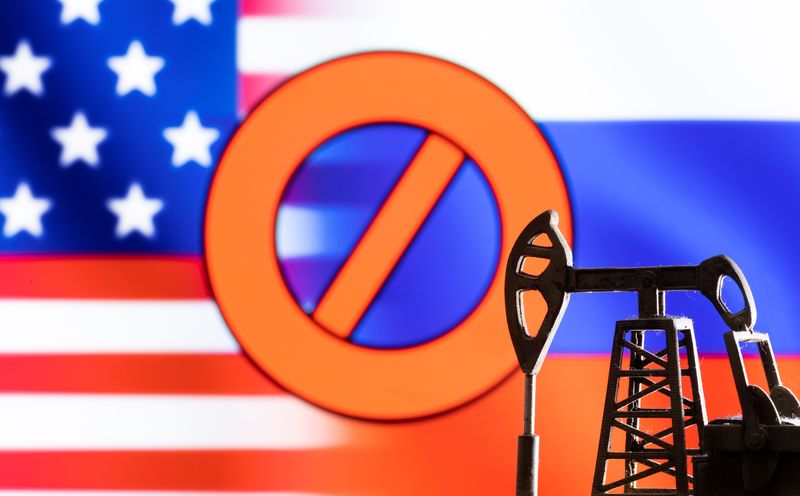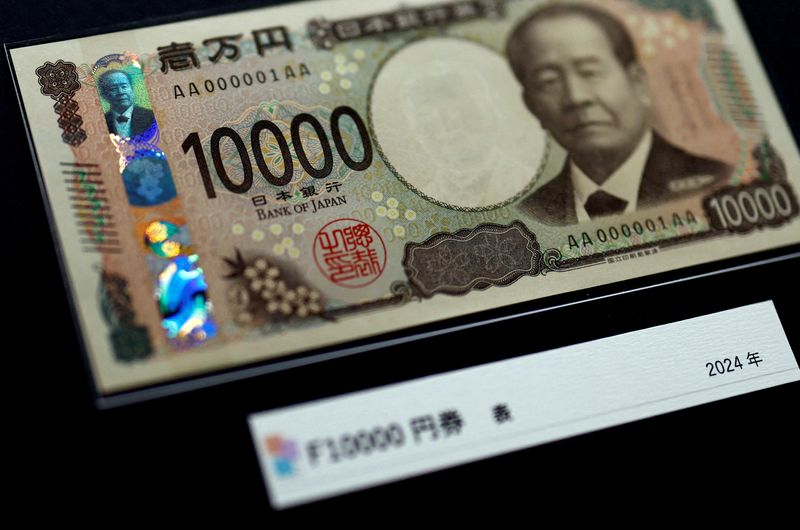
By Vladimir Soldatkin
MOSCOW (Reuters) – Sweeping U.S. sanctions on Russia’s oil industry will make it more expensive for Moscow to sell its oil and complicate sea-borne crude exports due to restrictions on tankers, analysts and traders said on Monday.
U.S. President Joe Biden’s administration unveiled the measures targeting Russia’s oil and gas revenues on Friday, in an effort to give Kyiv and Donald Trump’s incoming team leverage to reach a deal for peace in Ukraine.
The United States has until now been wary of spooking global oil markets and Russia has successfully evaded Western sanctions on its oil – such as the oil price cap imposed by the Group of Seven countries in 2022 – and selling vast volumes to China and India.
However, the new sanctions target traders, insurers and 183 vessels in the so-called shadow fleet which have allowed the world’s second largest oil exporter to get its oil to global markets.
Oil prices have climbed by about 6% since Jan. 8, surging on Friday after the latest sanctions were introduced. [O/R]
The Kremlin said that the sanctions risked destabilising global markets, and Moscow would do everything possible to counter them.
“It is clear that the United States will continue to try to undermine the positions of our companies in non-competitive ways, but we expect that we will be able to counteract this,” Kremlin spokesman Dmitry Peskov said.
“Such decisions cannot but lead to a certain destabilisation of international energy markets, oil markets. We will very carefully monitor the consequences and configure the work of our companies in order to minimise the consequences of these … illegal decisions.”
According to Morgan Stanley (NYSE:MS), which cited data from tanker tracker Vortexa, the tankers sanctioned by the United States carried around 1.5 million barrels of crude oil per day and 200,000 barrels per day of oil products in 2024.
“The most critical element of the sanctions was the new barriers for the sale of Russian crude oil and oil products on international markets, which will most likely lead to a temporary increase in the price discount for Russian liquid hydrocarbons while logistics and traders adapt to difficulties,” Moscow-based Sinara Bank said in a note.
It expected the discount of Russia’s flagship Urals oil blend to dated Brent, which stood at $8 per barrel as of Jan. 8, not to exceed $20. It added that the discount is likely to be offset by rising oil prices.
US SANCTIONS ON TANKERS EFFECTIVE FROM MARCH
Proceeds from oil and gas sales for Russia’s federal budget in 2024 jumped by around 26% to 11.13 trillion roubles ($108 billion), according to the finance ministry.
Currently, over 60% of Russia’s seaborne oil exports go to India, the world’s third-largest oil importer and consumer. Russia’s total oil exports exceed 5 million barrels per day, or around 5% of global demand.
India does not expect any disruption to Russian oil supply in the next two months as U.S.-sanctioned tankers are allowed to discharge crude until March, a senior Indian government official said.
It will allow Russian oil cargoes booked before Jan. 10 to unload at ports, the source told reporters on condition of anonymity, adding that after that Russia would find ways for its oil to reach India.
Lyudmila Rokotyanskaya of Moscow-based BCS brokerage, said the new sanctions will likely be quite efficient for at least a few months and lead to a material decline in Russia’s sea-borne oil exports and a rise in the Urals discount.
She said Russia’s shadow fleet, which deploys various techniques to bypass international sanctions, including the price cap, amounts to 800 tankers.
“That capability will be partially limited,” she said in a note.
Russia’s leading tanker group Sovcomflot, which was already on the sanctions list issued by Washington last year, also saw more of its tankers included in the fresh restrictions.
“I think that within three to six months companies will find a way out of the situation, but the short-term prospects are a cause for concern,” a trader in Russian oil said.

ING bank also said that decline in overall Russian crude oil exports could be limited.
“Some buyers may choose to ignore these sanctions, and Russia may also rely more heavily on those tankers in the shadow fleet that are not sanctioned to continue the trade,” it said.
This post is originally published on INVESTING.




